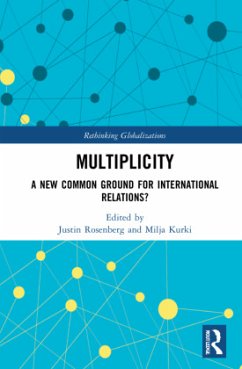This volume takes up the idea of 'multiplicity' as a new common ground for international theory, bringing together 10 scholars to reflect on the implications of societal multiplicity for areas as diverse as nationalism, ecology, architecture, monetary systems, cosmology and the history of political ideas.
International relations (IR), it is often said, has contributed no big ideas to the interdisciplinary conversation of the social sciences and humanities. Yet this is an unnecessary silence, for IR uniquely addresses a fundamental fact about the human world: its division into a multiplicity of interacting social formations. This feature is full of consequences for the very nature of societies and for social phenomena of all kinds. And in recent years a research programme has emerged within IR to theorise these 'consequences of multiplicity' and to trace how the effects of the international dimension extend into other fields of social life. This book is a powerful indication of the contribution that IR may yet make to the human disciplines.
The chapters in this book were originally published as a special issue of Globalizations.
International relations (IR), it is often said, has contributed no big ideas to the interdisciplinary conversation of the social sciences and humanities. Yet this is an unnecessary silence, for IR uniquely addresses a fundamental fact about the human world: its division into a multiplicity of interacting social formations. This feature is full of consequences for the very nature of societies and for social phenomena of all kinds. And in recent years a research programme has emerged within IR to theorise these 'consequences of multiplicity' and to trace how the effects of the international dimension extend into other fields of social life. This book is a powerful indication of the contribution that IR may yet make to the human disciplines.
The chapters in this book were originally published as a special issue of Globalizations.

